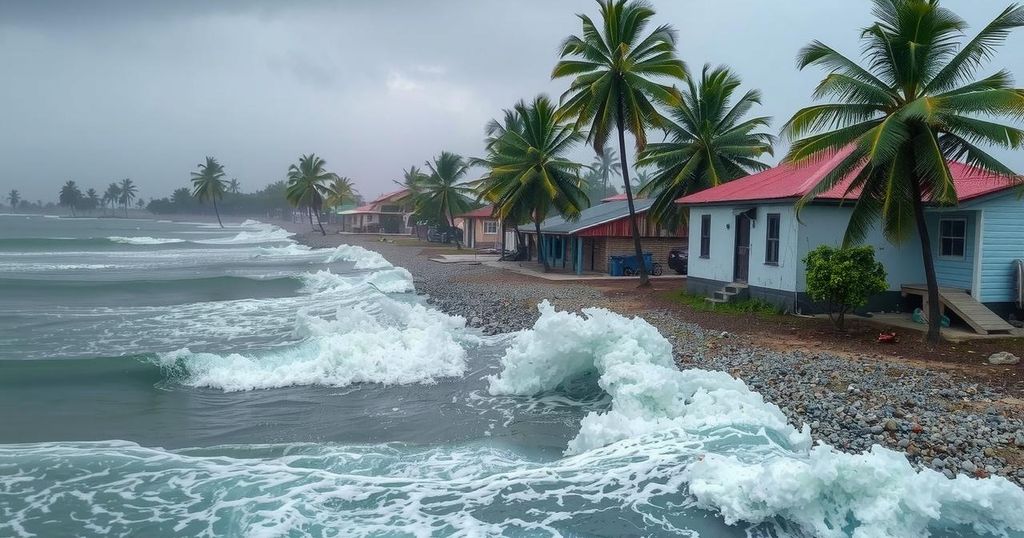Death Toll from Cyclone Chido Rises to 94 in Mozambique, Devastating Communities
Cyclone Chido has resulted in 94 fatalities in Mozambique and 13 in Malawi, following its landfall on December 15, 2023. The cyclone, featuring winds of up to 260 km/h, has injured 768 individuals and damaged approximately 140,000 homes across the affected regions. Over 622,000 people in Mozambique and 35,000 in Malawi are reported to be affected, highlighting the need for urgent disaster response efforts.
The devastating effects of Cyclone Chido have led to an alarming increase in the death toll in Mozambique, which has now reached 94, as reported by the National Institute for Disaster Risk Management and Reduction (INGD). The cyclone made landfall on December 15, 2023, along the Indian Ocean coast, bringing with it maximum wind speeds of 260 kilometers per hour (approximately 161.5 miles per hour). As a result of the cyclone, up to 768 individuals sustained injuries, and approximately 622,000 people have been adversely affected. In addition to the tragic loss of life, Cyclone Chido has severely damaged or destroyed around 140,000 homes, affecting numerous health centers, public buildings, and educational institutions.
In neighboring Malawi, the impact of Cyclone Chido has similarly been felt, with the Department of Disaster Management Affairs (DoDMA) reporting 13 fatalities and 30 injuries since the storm’s onset on December 15. The cyclone has left over 35,000 people affected in the region. Cyclone Chido first impacted the French Indian Ocean territory of Mayotte on December 14, before ensnaring Mozambique, Malawi, and Zimbabwe in its destructive path, highlighting an increasing vulnerability to extreme weather events in these areas.
Cyclone Chido is part of a continuing trend of increasingly severe weather patterns attributed to climate change, particularly affecting regions along the Indian Ocean. The cyclone’s rapid intensification, characterized by extreme wind speeds and widespread destruction, poses significant challenges for disaster management and relief efforts. The affected regions, particularly Mozambique and Malawi, have seen substantial disruptions in their communities due to the cyclone, exacerbating already existing vulnerabilities. Understanding these events in the context of climate change is crucial for developing future mitigation strategies and enhancing resilience among local populations.
In summary, Cyclone Chido has caused significant devastation in Mozambique and Malawi, with rising death tolls and widespread damage to infrastructure and housing. Continuous monitoring and aid are critical in the aftermath to address the immediate needs of the affected populations. The reported casualties and disruptions underscore the urgent need for improved disaster preparedness and response mechanisms in order to mitigate the impacts of such extreme weather events in the future.
Original Source: www.aa.com.tr




Post Comment